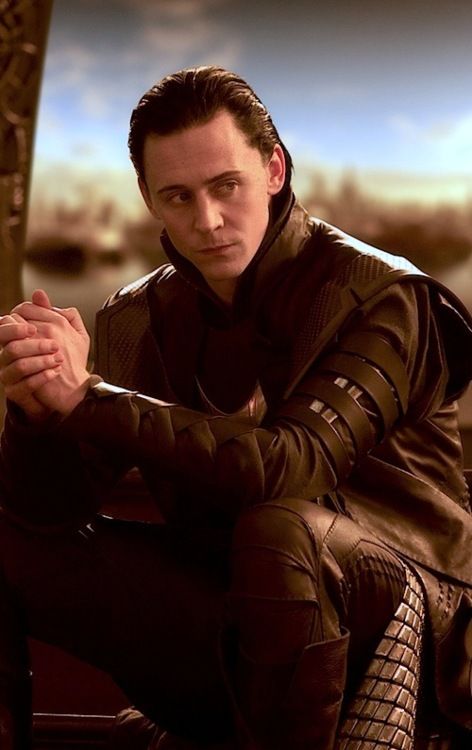The Anti-Hero Prince of the MCU
“The devil plays the best tunes” Tom Hiddleston says of the playful and mischievous Loki. One of the most engaging antagonists and relatable characters of the Marvel Cinematic Universe or ‘MCU‘, Loki is also one of the few villains with sufficient character depth and audience empathy to earn his own TV series.
The root of Loki’s enduring celebrity is his strong character arc from ‘Thor’ to ‘Avengers: Infinity War’.

Redemption Character Arc
Throughout five MCU films, Loki completes a redemption character arc. As befits a shapeshifter, Loki’s motivation and fraught relationships with his family change in each film. This constant evolution keeps his character fresh and evolving and prevents him from becoming a stale one-note antagonist. Loki isn’t a one-dimensional mustache-twirling villain because his motivation isn’t the usual limitless greed or a pure desire for death and destruction.
Loki is an engaging and relatable antagonist because he is driven by fraught and complex family relationships. He feels under-appreciated by his father, Odin, and over-shadowed by Thor, his big brother whom he calls a ‘witless oaf’. Raised alongside Thor, both bothers believed they were destined to be kings. Then Loki discovers that he was abandoned by his biological father, Laufey, and left to die. Adopted by Odin for political expediency, Loki is resentful when Odin treats him as second-best and is bypassed as heir to the throne of Asgard.
Loki’s complex family history motivates him to prove himself worthy of love and respect – the root of his almost universal relatability. Actors and audiences alike love to root for a charming and stylish underdog.
Tom Hiddleston says: “You’ve got your chips on Loki… you want to believe in him.”
Or as the Hulk puts it: “He really grows on you.”
Brains Over Brawn
Loki is more approachable and relatable as a character than Thor. Like most of us, Loki needs to leverage his brains since he could never compete with Thor’s brawn. As Tom Hiddleston observes: “Thor would be lifting tree trunks while Loki would be doing some yoga.” Loki’s status as a second son is similar to the dwarf Tyrion Lannister as compared to his strapping brother Jaime — ’The Kingslayer’ — in George R.R. Martin’s ‘A Song of Ice and Fire’.
‘Thor‘ (2011)
“Not every villain needs to be as complex as Loki to be effective, but Loki is dynamic is a way that no other villain is. He’s beloved by fans for being a complex villain with his villainous logic deeply rooted in his personality and growth as a character.” – WillFoxification
To discover out how Loki’s villainous logic works, let’s take a deep dive into ’Thor’.

In Kenneth’s Branagh’s 2011 film, Loki is the spiritually damaged second son of Odin who is overshadowed by his older brother and Odin’s biological son, Thor. When Loki learns that he is the abandoned son of Laufey, king of Odin’s conquered enemy the Frost Giants, Loki angrily confronts Odin about why Odin lied to him about his real parentage.
Tom Hiddleston gives a virtuoso performance when screaming the two words that so many children have longed to demand of their parents: “Tell me!”

This is the moment Loki becomes a complex yet empathetic antagonist, a rare and intriguing combination. Shouting and making demands of his adoptive father with distraught tears in his eyes, Hiddleston demonstrates Loki’s rawness and emotional volatility. Loki is ambitious, demanding, vulnerable, angry, pleading, manipulative and remorseful, and Hiddleston captures it all in one scene.
Shifting Identity and Alliances
While hauling around such intense emotional baggage, Loki’s alliances continually shift throughout the film. He angrily confronts Odin about being Laufey’s son and sends Odin into an inert state. Loki then enables the Frost Giants to invade Asgard but kills his biological father, Laufey, before Laufey can kill Odin.
When he challenges Thor fight him, Loki justifies his unpredictable and contradictory behavior. He tells Thor that he did it all to ‘to prove to father (Odin) that I am a worthy son… and true heir to the throne.’ A few lines later, Loki declares that he ‘never wanted the throne’ and that he only wanted to be Thor’s equal. Loki claims that he is Odin’s son but also tells Thor ‘I’m not your brother’ in the same scene.
We believe Loki’s mercurial statements about who he is and what he wants because we understand his complex backstory. Much of that believability can be credited to Hiddleston’s performance. Hiddleston skillfully holds the conflicting parts of Loki’s personality and motivations in balance, and gives the character a Shakespearean poignancy.
https://youtu.be/F8k7NMifxPI?t=89
It’s All About Family
Audiences have deep empathy for Loki because they understand and can relate to his family struggles. Loki’s reaction to the emotional bombshell of being adopted is understandable, and his torrent of conflicting outbursts against Odin and Thor (and even Frigga, in ‘Thor: The Dark World’) reads as real and intensely human.
Loki embodies a familiar contradiction rooted in the dueling aspects of his personality. He loves his family and he hates his family. And Loki hates that he can’t stop loving his family, no matter how much pain and frustration it causes him.
Parts 2 & 3
Read Part 2, covering Loki’s character arc in ‘Avengers’ and ‘Thor: The Dark World’
Read Part 3, covering Loki’s character arc in ‘Ragnarok’ and ‘Infinity War’
What do you think motivates Loki? Why do you think audiences find him so interesting? Let me know in the comments!
Leave a Reply